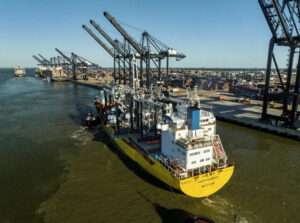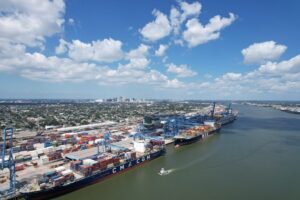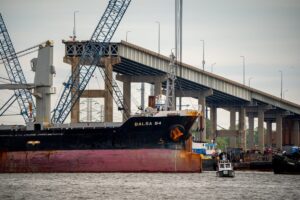-
Pacific island join forces with Aitken Spence to overhaul operations in Suva and Lautoka
Fiji has joined forces with a major global maritime logistics company to overhaul the operation of the country’s two biggest ports, Suva and Lautoka, and speed up the flow of goods in and out of the country.
Prime Minister, Voreqe Bainimarama, says poor performance on the wharves has hindered Fiji’s development, added to the cost of imports and exports and forced ordinary Fijians to pay more for imported goods.
“This affects every Fijian and cannot be allowed to continue. So today, I announce a program of radical reform,” said Bainimarama.
“The old ways of doing things of the wharves are over. These ports need to be run as smoothly and efficiently as possible to ensure that our trade runs more freely and more cheaply for the benefit of all Fijians.”
The Prime Minister was speaking at the signing of a Private Public Partnership (PPP) agreement between the Fiji Ports Corporation and Sri Lankan conglomerate, Aitken Spence PLC. He added that the two companies were joining forces, through FPCL’s subsidiary Ports Terminal Limited, to bring international best practice to the ports of Suva and Lautoka.
“We share the same vision to make these container terminals world class, to radically overturn the inefficiencies of the past and apply best practice to eventually establish them as the leading ports and maritime logistic centres in the Pacific,” he said.
The Prime Minister signalled that the reforms could produce right sizing in the short term but the long-term effect would be more jobs and more investment as the cost of doing business came down.
“Yes, initially there may be re-organization on our wharves as certain changes are implemented and new technology is introduced. However, these will be more than offset by the creation of new jobs as the benefits flow to the wider economy.”
“The odds of success are vastly in our favour. 88 of the top 100 sea ports in the world are run by public/private partnerships like this one that generate much higher revenues than operations that are wholly government owned,” said Bainimarama.








